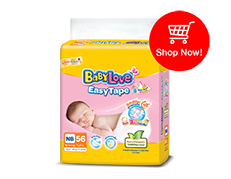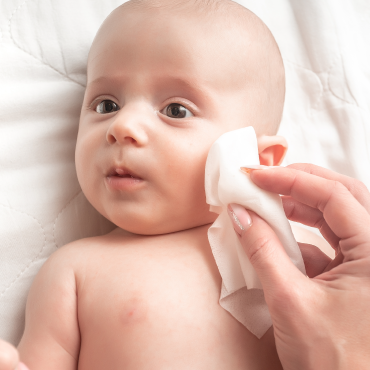Although jaundice in newborns looks a little shocking in that the color of the baby’s skin looks abnormal, the condition and symptoms are actually pretty common. This condition is caused by many factors, including the blood group of the mother and the child being incompatible. After birth, the doctor evaluates the development of all aspects of the newborn baby, from the vocal stimulation, pulse measurement, pulmonary system, respiratory system, as well as jaundice. If this condition is found, the newborn will require special care from the pediatrician.
What is maternal and neonatal blood type incompatibility?
The blood group of the child depends on the blood type of father and mother. If the child has acquired the father’s blood type, it is possible that maternal and neonatal blood type incompatibility may occur. The condition can be found in 20-50% of newborns.
Categorization of Blood Types
Blood types can be categorized into 2 main groups:
- The main blood groups are A, B and O
- The blood group Rh can be divided into Rh+ and Rh-
Blood groups A, B and O are familiar systems. The system is divided into 4 groups: A, B, AB and O, which is determined by the protein that is on the surface of the red blood cells. This protein is called Antigen. There are two types antigens in the ABO system: Antigen-A and Antigen-B
In case you want to know which blood group your baby has in the ABO system, you can roughly calculate it from the blood of the father and mother because determining the blood group of the fetus is quite difficult and there is a risk of harm to the pregnancy. Postpartum examination is the best option.
Rh is another blood group system. When you seek antenatal care at the hospital, the doctor will check your blood to determine your blood type. This test will be carried out on both systems and will reveal the different blood types the mother has. For example, some mothers have the blood type O, Rh +, while some have the blood type B, Rh-. This blood type will be passed down to the child as well. The Rh system is divided into two groups.
- The blood type Rh+ (Rh positive) contains antigen in red blood cells. The blood type is very common in Thai people, nearly 100% has Rh + blood.
- The blood type Rh- (Rh negative) does not contain antigen in red blood cells. It is a rare blood type in Thai people at less than 1 percent.
The body of people with blood type Rh- is not familiar with antigen in red blood cells. Therefore, when they receive blood that is type Rh +, the body creates immunity to destroy the red blood cells, perceiving it as foreign matter
Causes of Jaundice
Maternal and neonatal blood type incompatibility in ABO blood group is usually mild and caused by antibody in the blood. The mother's blood can penetrate the placenta into the blood of the fetus. Antibodies that are passed into the blood of the baby will destroy the red blood cells of the baby. However, only 5% of cases of maternal and neonatal blood type incompatibility causes the discharge of the substance in the red blood cells called "bilirubin", which is a yellowing agent. Its presence in the blood will cause it to adhere to the skin and mucous membranes in the eye, causing visibly yellow skin and eyes in newborns.
Mothers with Rh + or Rh- blood type can conceive naturally. If the mother has Rh-blood type, but the baby has Rh + blood type, it may cause maternal and neonatal blood type incompatibility. In this case, the blood must be monitored for toxicity because if the baby's Rh + blood type enters the mother's body, causing the mother to build immunity, it will destroy the baby’s red blood cells.
Prevention and treatment
The best prevention in the case of Rh blood group incompatibility between mother and child is to seek antenatal care early on. If the mother and baby’s blood type are found to be incompatible in the first pregnancy, the doctor will inject a drug to help lessen the mother’s body natural immunity to the baby’s blood to prevent the blood of the mother from destroying the baby’s red blood cells. In following pregnancies, there will be no problems with the birthing process. Mothers with Rh- blood group can still give birth naturally
The treatment of jaundice must be focused on treating the main cause, in conjunction with the reduction of bilirubin levels by increasing the removal of bilirubin from the body, such as light treatment, or direct removal of bilirubin from the body through blood transfusions, for example.
Side Effects of Jaundice
In some cases, if the level of bilirubin is very high that Bilirubin attach itself to the brain, causing cerebral complications. This will cause seizures and permanent damage to the brain tissue, as well as the possibility for low I.Q and hearing disorders.
Although jaundice in newborns is quite common, it does not warrant too much worry because there is a very low chance that the baby will be seriously harmed or die in the womb. However, if you think you may be pregnant, seek antenatal care as soon as possible so that the doctor can take care of you and provide regular checkups for you and the baby. The ongoing care until birth has a huge impact on the health of the baby.
Sources: www.mothercorner.com and www.bangkokhealth.com
Crated At 28/12/2016






















